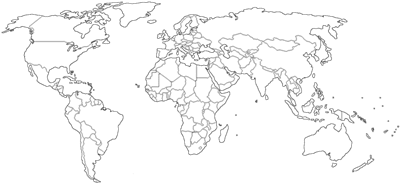|
Summary:
Supervision of the Construction for Farafenni Lumo and Refurbishment for Jarra Soma Youth Center Country:
Gambia
Notice Type:
Tender Notice Deadline:
02 May 2024 Posting Date:
27 Apr 2024 |
|
Summary:
supply and installation of 33/llkV substations and ll/0.415kV package Substations within the Greater Banjul Area. Country:
Gambia
Notice Type:
Tender Notice Deadline:
15 May 2024 Posting Date:
08 Apr 2024 |
|
Summary:
Gm-Gambia Inclusive And Resilient Agricultural Value Chain Develop -- P173070 Country:
Gambia
Notice Type:
Procurement Plan Deadline:
28 Jan 2025 Posting Date:
30 Jan 2024 |
|
Summary:
Gm-Gambia Inclusive And Resilient Agricultural Value Chain Develop -- P173070 Country:
Gambia
Notice Type:
Procurement Plan Deadline:
20 Nov 2024 Posting Date:
23 Nov 2023 |
|
Summary:
Gm-Gambia Inclusive And Resilient Agricultural Value Chain Develop -- P173070 Country:
Gambia
Notice Type:
Procurement Plan Deadline:
08 Nov 2024 Posting Date:
10 Nov 2023 |
|
Summary:
Gm-Gambia Inclusive And Resilient Agricultural Value Chain Develop -- P173070 Country:
Gambia
Notice Type:
Procurement Plan Deadline:
08 Oct 2024 Posting Date:
10 Oct 2023 |
|
Summary:
Gm-The Gambia Social Safety Net Project -- P167260 Country:
Gambia
Notice Type:
Procurement Plan Deadline:
27 Aug 2024 Posting Date:
29 Aug 2023 |
|
Summary:
Gm-The Gambia Social Safety Net Project -- P167260 Country:
Gambia
Notice Type:
Procurement Plan Deadline:
24 Jul 2024 Posting Date:
26 Jul 2023 |
|
Summary:
Gm-Gambia Inclusive And Resilient Agricultural Value Chain Develop -- P173070 Country:
Gambia
Notice Type:
Procurement Plan Deadline:
17 Jul 2024 Posting Date:
19 Jul 2023 |
|
Summary:
Gm-Gambia Inclusive And Resilient Agricultural Value Chain Develop -- P173070 Country:
Gambia
Notice Type:
Procurement Plan Deadline:
09 Jul 2024 Posting Date:
11 Jul 2023 |

Most trusted source for Tendering Opportunities and Business Intelligence since 2002